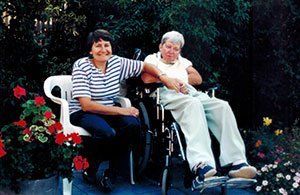What Comes After Care Giving?
When the care giving role has finished, the individual usually experiences a loss of identity. Here are ten ways of transitioning successfully from being a caregiver to creating a new life.
“Now you can get on with your life” are the words of comfort we hear when our role as caregiver is over. The depression that we sink into, and others cannot fathom, is grief for ourselves. Others will attempt to help us get over the grief for the person lost from our life but will fail to realize that it is the loss of self for which we grieve later. Indeed we don’t realize this for ourselves at the time. Since we have spent a long time putting the needs of another first, we fail to understand how much of self-identification was tied up in those needs.
I was a caregiver for almost 10 years. Grief followed my partner’s death. But my “depression” did not hit till 18 months later. It was a period of transition – from one self to the next. From one identity, one image of self – to a new me. The transition has a big question mark at the beginning. “What am I going to do with the rest of my life?” “Who am I, anyway?” The journey is that of our own transformation.
How do we successfully transition?
1. Recognize that this is the task at hand.
2. Re-evaluate the role that we have played and now lost. This means look at it as if we were writing a job description. We do not need to dwell on criticizing how successfully we performed, but focus on what skills we acquired, what tasks we accomplished, what creativity we showed. Society does not place value on the role we have played. We must not fall into the trap of belittling our own accomplishments. We must familiarize ourselves with whom we have become because of this experience. We have been forever changed.
3. Recognize that over time we searched for recognition in the role we played. To do it well, the caregiver role became us. It was how we identified ourselves. Others related to us through that role. Any socializing we had was a respite from that role. Any emotional support we received was to help us cope with that role. Most of our conversation was about the talk of care giving. Then it is over and all the professionals who shared the challenge have disappeared. We are not supposed to need them any more. But they were the people who validated who we were. All those routines that had become our life – the doctor visits, the care giver support groups, the volunteers – have all gone. Suddenly we are naked. We have no identity and we are alone. The task at hand is to build a new identity.
4. Don’t deny the pain, look at the fears, and accept the feelings for what they are. We are learning how to face change. We are learning how to let go of the past – of whom we were, of what was. We are in a transition where there is no going back. A time when this moment truly is the most important of our life. For it is the only moment that is real. The only moment that counts. How we live it will determine what is ahead of us.
5. Find a mentor who has been there. If no one is available chose someone who is prepared to listen without thinking they must solve problems. Only you can forge the future path. It must come from within you, not the suggestions of others. The gift others can give you now is the ear that witnesses your progress. Their only task is to stop you from dwelling on negative repetition. We used to call this being a “broken record.” Sometimes we used to imitate playing on an imaginary violin to indicate the repetitive telling of a sad story. We do not make changes when we are repeating the same old story over and over again.
6. Slowly open new doors and test how you feel. My breakthrough came when I started reading books on spirituality and healing. I will list a few that have impacted my life and caused me to shift my views, beliefs and attitudes. They moved me from being a victim of my circumstance to being the captain of my ship. This is not a complete list but examples of books that helped me look at the world, life and me in a different way. They helped the change process.
Anatomy of the Spirit / Why People Don’t Heal and How They Can – Caroline Myss
When Things Fall Apart – Pema Chödron
The Four Agreements – Don Miguel Ruiz
My Grandfather’s Blessings – Rachel Naomi Remen MD
Home with God – Neale Donald Walsch
Man’s Search for Meaning – Viktor E. Frankel
7. Let go of self restricting beliefs and attitudes about yourself and your future. “Poor me,” “my life is over,” “I shall never be able to…” – they will not serve you well. They are a devise to stifle facing change. If we see our cup as half empty – it will remain so. If we see that same cup as half full then there is room for more. When we believe in “can’t,” then that is what we will experience.
8. Let go of the need to make yesterday a living presence today. Instead use the knowledge gained yesterday to make today more successful. The brain cannot distinguish between what is happening now and what you are remembering from the past. To remember the pain of the past is to bring it back to make it real – a conscious decision. The brain can’t tell the difference. The brain can only bring into awareness one thing at a time. Again, you choose what you focus on.
9. If you experience real difficulty focusing on the now, finding it so much easier to retreat into the past, we must develop rituals to stay present. Going for a walk and consciously focusing on everything we see is a helpful exercise. Quickly we realize how much we are missing when our thoughts are not here. Actively listen to the conversations of others. Don’t concentrate on how you can segue conversation to go back in time with you. In conversations with others, discipline yourself to only talk about new information, not stuff they have heard before. This is a powerful exercise because it forces you to bring newness into your life – what you saw on your walk, the book you have just read, the TV program, the baking you have tried, today’s weather, sports teams etc. Now you are creating new life, not regurgitating the past.
10. Gradually the new you will emerge with new dreams and aspirations. They may have to be adapted to fit the budget or the limits of increased age, but we are no longer letting the budget or our age be the excuse for not doing something.
11. To be a caregiver is a gift. Often a painful one that we were unprepared for, but the new butterfly that emerges from our transitional cocoon could never have seen life if we had not met the challenge.
The person I am today, ten years after my care giving ended, is not the person I would have become without the experience. I am filled with gratitude and know I have become the person I was supposed to be in this life.







